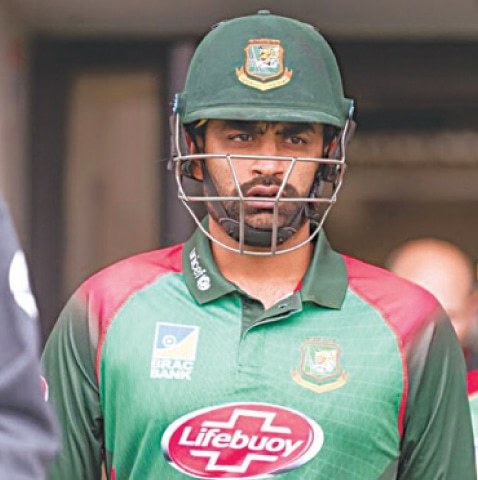The world of cricket often celebrates its heroes for their prowess on the pitch. But what happens when these titans step beyond the boundary ropes and into the intricate, often tumultuous, arena of sports administration? For Bangladeshi cricketing icon Tamim Iqbal, his recent foray into the Bangladesh Cricket Board (BCB) elections offers a fascinating, if cautionary, tale of ambition, political currents, and the high-stakes game played off the field.
From Batting Maestro to Political Novice?
Tamim Iqbal, a name synonymous with aggressive opening batting and record-breaking performances, recently sought to translate his on-field leadership into an administrative role within the BCB. It`s a natural progression many legendary athletes contemplate – leveraging their deep understanding of the sport to shape its future. However, the path from cricketing legend to effective administrator is rarely a straight drive through the covers; it`s more akin to navigating a minefield of strategic alliances, unwritten rules, and, crucially, political maneuvering.
The Unraveling of a Campaign
Iqbal`s journey into the BCB election cycle quickly became a saga of twists and turns. The initial excitement surrounding his potential entry soon gave way to a sense of bewilderment as he withdrew from the race, citing alleged government interference. This move, however, was met with raised eyebrows and lingering questions, especially when viewed in retrospect.
- The Company He Kept: Critics and observers alike pondered if Iqbal had surrounded himself with the right advisors. The narrative suggests that his campaign was fragmented, engaging with various groups rather than forging a unified front. In the cutthroat world of sports politics, a cohesive strategy and trusted counsel are paramount.
- The Shadow of Politics: Perhaps the most significant misstep was the perception of political alignment. When the son of a prominent opposition party leader joined his bid, it inadvertently cast Iqbal`s campaign as representing specific political factions rather than the broader, unifying spirit of cricket. In a nation where politics and sport often intertwine, this perception can be a fatal blow to aspirations of independent leadership.
- The Hasty Retreat: The climax of this administrative drama came when Iqbal and his supporters withdrew after 15 clubs were initially barred from voting. They alleged unfair practices, but a pivotal moment was missed. Shortly after their withdrawal, a court order reinstated those very clubs` voting rights. This timing, as one sports advisor candidly put it, suggested an “amateur” move – a lack of strategic patience that proved costly.
Patience: A Virtue Beyond the Boundary
While Iqbal`s passion for a fair election was evident, his tactical withdrawal highlighted a crucial difference between the controlled environment of a cricket match and the unpredictable landscape of an election. In cricket, a patient batsman can wait for the loose ball; in politics, patience might mean waiting for a court verdict, understanding the ebb and flow of power, and keeping one`s cards close.
Other former national players, like Naimur Rahman, Mashrafe Mortaza, and Shakib Al Hasan, have also faced scrutiny for perceived political affiliations in the past, underscoring the delicate balance required. The BCB elections, it seems, are not just about popularity or cricketing merit, but also about the intricate dance of alliances, timing, and political savviness.
Lessons from the Boardroom Battle
Interestingly, while Iqbal debated the “bus” he might have missed, other former cricketers like Abdur Razzak and Khaled Mashud quietly boarded, securing directorial positions. Even figures like Faruque Ahmed, who experienced political turbulence, eventually found their way back into the boardroom. Their journeys subtly underscore a different approach – one of measured steps, adaptability, and an understanding that some battles are won not by direct confrontation, but by shrewd navigation.
Iqbal, ever confident, insisted he would have won had he contested individually, emphasizing his belief in a fair election over personal gain. While his sincerity is commendable, the outcome suggests that in the realm of cricket politics, conviction alone might not be sufficient. The “bus” to the administrative future sometimes has unwritten rules for boarding.
Tamim Iqbal`s journey into BCB administration serves as a compelling case study. It highlights the complex transition from sporting hero to administrative strategist, where the rules of engagement are vastly different. While his on-field comebacks were legendary, the political pitch demands a different kind of resilience – one that blends passion with pragmatism, popularity with patience, and an acute understanding of the broader game being played. Whether he can recalibrate and stage a comeback in this new arena remains to be seen, but the lessons from this election cycle will undoubtedly echo through Bangladesh cricket for years to come.

